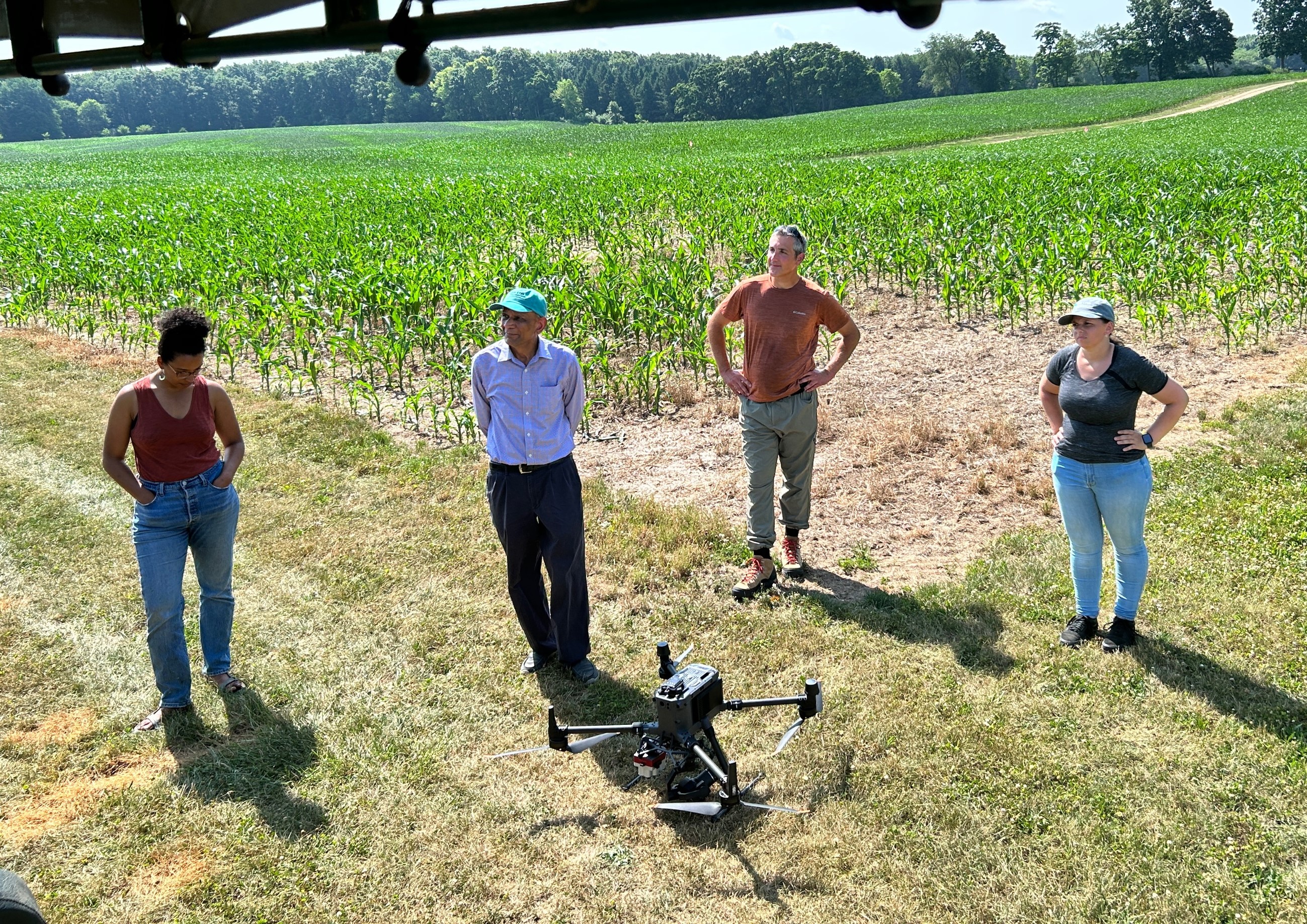CANR-Europe Partnership Forum explores strategic collaboration in agricultural research, education and extension
MSU’s CANR hosted the Europe Partnership Forum, bringing together European partners for a multi-day event focused on collaboration in agriculture, food systems and natural resource sustainability.

East Lansing, MI — Michigan State University’s College of Agriculture and Natural Resources (CANR) recently hosted the CANR–Europe Partnership Forum, welcoming academic leaders, researchers and institutional partners from across Europe for a multi-day event focused on advancing collaboration in agriculture, food systems and natural resource sustainability.
Held June 23–26, 2025 and organized by CANR International Programs, the forum provided an opportunity to deepen partnerships and explore shared research priorities through dialogue, discovery and cultural exchange.
The event opened with welcome remarks from CANR leadership—including Dean Matt Daum; Dr. Quentin Tyler, director of MSU Extension; Dr. George Smith, director of AgBioResearch; Dr. Laura Bix, associate dean of Graduate Programs; and Dr. Antomia Farrell, associate dean for Culture, Access and Belonging—highlighting MSU’s commitment to global engagement and collaborative science.
Key sessions featured presentations by European institutions on their existing partnerships with MSU and opportunities for future collaboration, emphasizing shared goals in research, innovation and joint funding proposals. These sessions laid the foundation for actionable strategies aimed at solving global agricultural challenges.
 Dr. Karim Maredia, assistant dean and director of International Programs in the College of Agriculture and Natural Resources at MSU, said the forum plays a vital role in strengthening CANR’s international efforts and broadening its global reach.
Dr. Karim Maredia, assistant dean and director of International Programs in the College of Agriculture and Natural Resources at MSU, said the forum plays a vital role in strengthening CANR’s international efforts and broadening its global reach.
“The CANR is a globally engaged college with a diverse portfolio of international projects. The CANR-Europe Partnership Forum offers a great opportunity to expand our global network for collaborative research, education and outreach programs,” said Maredia. “Historically, our international work has been heavily focused on countries in Africa and Asia. This forum has opened new doors of opportunity for enhancing our collaborations with institutions in other regions of the world. Our goal is to build global knowledge partnerships to help address pressing global challenges of food and nutritional security, climate change, water resources, soil health, renewable energy and sustainable agriculture, among others.”
The forum also brought participants beyond the conference room for immersive, hands-on experiences. Visits to MSU’s Kellogg Biological Station, the Lake Michigan shoreline and the historic Kellogg Manor House offered cultural and environmental context for international collaboration. Meanwhile, tours of MSU’s South Campus Anaerobic Digester (SCAD), the Michigan Pollinator Initiative and the Dairy Cattle Teaching & Research Center highlighted cutting-edge research in sustainable agriculture. These site visits fostered dynamic conversations between faculty, department heads and international delegates, reinforcing the value of field-based learning and collaborative innovation.
The final day featured a group strategy session focused on next steps, during which attendees brainstormed joint proposals and identified long-term goals for engagement. As CANR continues to build global partnerships, the Europe Partnership Forum represents a model for how shared expertise and vision can drive lasting impact.
Participating Institutions and Delegates
The forum welcomed a diverse group of faculty, researchers, and leaders from MSU and European partner institutions. Their engagement was crucial to the event's success.
A full list of participants is provided below:
- Franz Fehr, BOKU University, Austria
- Marc Heijde, VIB-IPBO/Ghent University, Belgium
- Miller Alonso Camargo-Valero, School of Civil Engineering, University of Leeds, England, UK
- Nataša Lovrić, University of Eastern Finland, Joensuu, Finland
- Francois Barbier, CNRS – IPSiM, France
- Nicola Francesconi, KIT, The Netherlands
- Albert Johnston, CAFRE, Northern Ireland, UK
- Bishnu Chandra Poudel, Linnaeus University, Sweden



 Print
Print Email
Email




